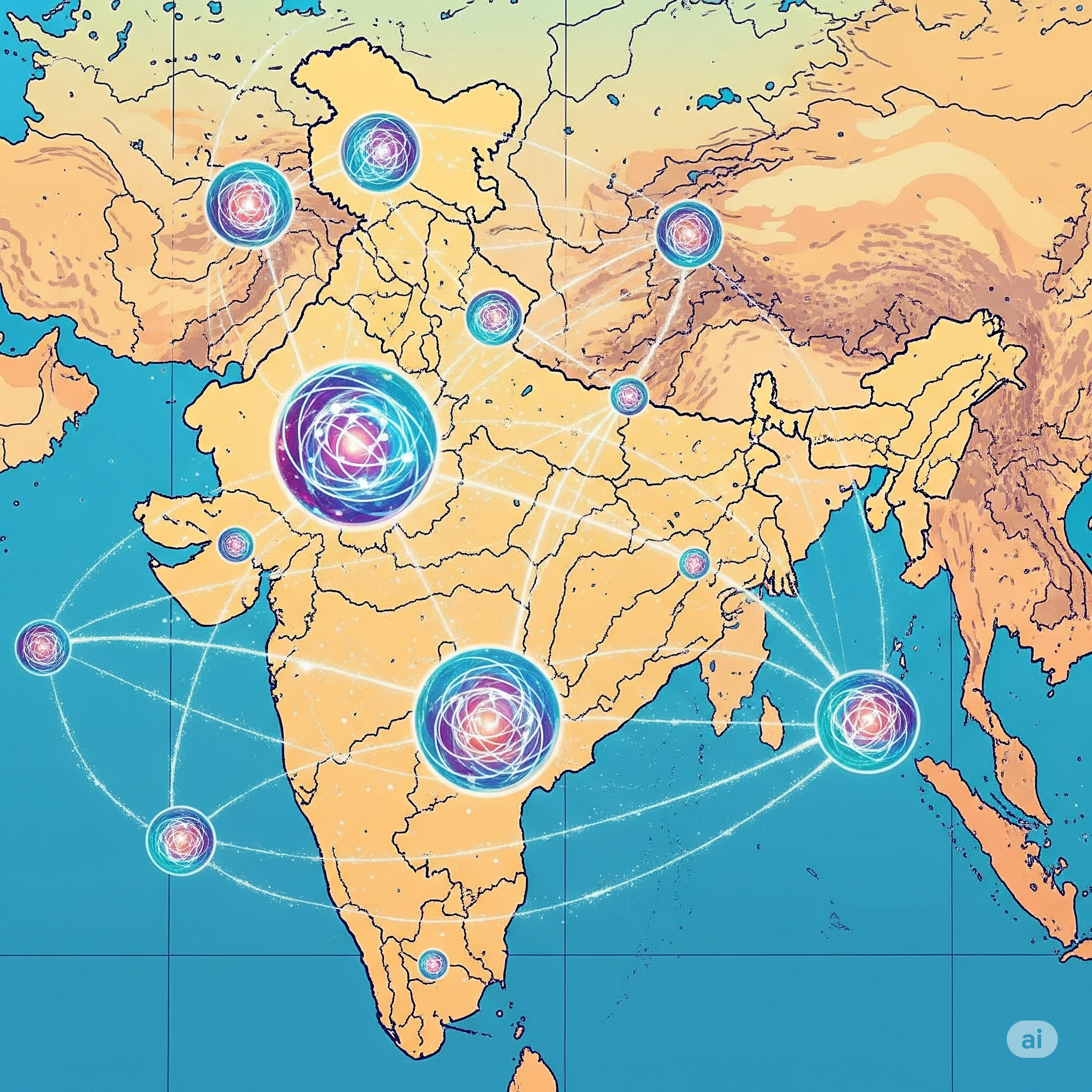📌 Key Takeaways
- ₹6000 Crore Mission: Government of India has allocated ₹6000 crore for the National Mission on Quantum Technologies & Applications (NM-QTA).
- Strategic Tech Focus: Aims to develop quantum computing, communication, cryptography, and sensors.
- Vision 2025 Goals: Establish 4 Thematic Hubs, build quantum computers, and train a skilled workforce.
- Global Ambition: Seeks to position India among the top quantum nations by 2030.
- Multi-sector Impact: Quantum technologies to benefit defense, finance, healthcare, and cybersecurity.
Introduction
India is gearing up to lead the next technological revolution—the Quantum Revolution. With the launch of the National Mission on Quantum Technologies & Applications (NM-QTA), the Indian government has set an ambitious goal to develop cutting-edge quantum capabilities by 2025. Backed by a ₹6000 crore investment, the mission reflects India’s intent to not just participate but lead in this transformative domain.
What is Quantum Technology?
Quantum technology is based on the principles of quantum mechanics, which govern particles at the subatomic level. It powers applications such as:
- Quantum computing – solves complex problems beyond classical computers.
- Quantum communication – enables ultra-secure information transfer.
- Quantum cryptography – protects sensitive data using unbreakable encryption.
- Quantum sensing – boosts precision in measurement and detection.
The Vision: What India Aims to Achieve by 2025
🧠 1. Establishing Quantum Hubs
The mission plans to set up four Thematic Hubs (T-Hubs) in premier institutions, each focused on:
- Quantum computing
- Quantum communications
- Quantum sensing & metrology
- Quantum materials & devices
These hubs will drive both basic research and applied innovation.
🖥️ 2. Developing India’s First Quantum Computer
The government plans to develop a 50–100 qubit quantum computer, marking India’s foray into quantum hardware development. This will require indigenous fabrication, error correction systems, and cooling mechanisms.
👩🔬 3. Training Talent and Building Infrastructure
- Create a skilled workforce of scientists, engineers, and technicians.
- Build testbeds, simulation labs, and quantum innovation parks.
- Promote international collaborations and attract global expertise.
Why Quantum Technology Matters for India

🛡️ 1. National Security and Defense
Quantum-secured communication and encryption will ensure cyber-resilient defense systems and protect against foreign cyber threats and quantum-enabled espionage.
💰 2. Economic and Industrial Growth
- Potential to unlock multi-billion-dollar industries in software, devices, and services.
- Encourages public-private partnerships and startup ecosystems in deep tech.
🏥 3. Applications in Health and Climate
- Quantum sensors can enhance diagnostic imaging and environmental monitoring.
- Precision in climate modeling, pollution tracking, and drug discovery.
India vs the World: How We Compare
Countries like USA, China, Canada, and the EU have already invested heavily in national quantum missions.
| Country | Estimated Investment | Key Focus Area |
|---|---|---|
| USA | $1.2 Billion | Quantum computing, networking |
| China | $10 Billion+ | Quantum communication & supremacy |
| EU | €1 Billion | Pan-European quantum collaboration |
| India | ₹6000 Crore (~$750 Million) | Holistic quantum tech ecosystem |
India’s NM-QTA is among the most structured and funded programs globally, especially for a developing country.
Challenges and The Road Ahead
❗ Challenges:
- Limited number of trained quantum scientists
- Infrastructure bottlenecks
- Dependency on foreign equipment
🚀 What’s Next:
- Scale pilot projects to commercial applications
- Launch satellite-based quantum communication trials
- Strengthen academic-industry collaborations
Conclusion
The National Mission on Quantum Technologies represents a strategic, scientific, and sovereign leap for India. With its focus on 2025 goals, it lays the foundation for India to emerge as a global quantum powerhouse by the next decade. If executed efficiently, this mission could revolutionize everything from defense and healthcare to banking and the internet.
India’s future is not just digital—it’s quantum.









+ There are no comments
Add yours